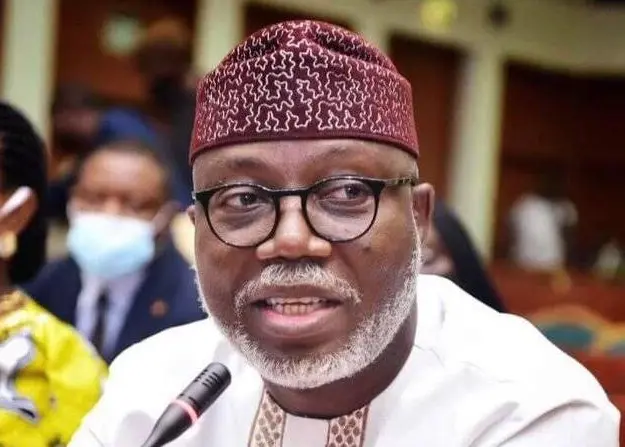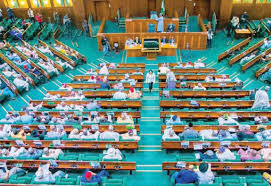Tenure Elongation: Aiyedatiwa Lobbies NASS Members, Engages SANs
Ondo Governor Aiyedatiwa Pursues Constitutional Amendment for Potential Tenure Extension
In a strategic bid to navigate constitutional limitations, Ondo State Governor Lucky Aiyedatiwa has reportedly initiated behind-the-scenes efforts to influence members of the National Assembly. These moves aim to amend Section 183(3) of the 1999 Constitution of the Federal Republic of Nigeria (as altered by the Fourth Alteration, No. 16 Act of 2017), which restricts successors who complete an incomplete gubernatorial term.
Enacted in 2019 under former President Muhammadu Buhari’s administration, the provision states that an individual who steps into the governorship role due to circumstances like death, resignation, impeachment, or permanent incapacity can only serve one additional four-year term if elected subsequently. For Aiyedatiwa, who assumed office on December 27, 2023, following the passing of his predecessor, the late Governor Rotimi Akeredolu, this means his current term—beginning after his election victory in November 2024—could be his only full term.
Sources close to the Ondo State government revealed to this publication that Aiyedatiwa’s outreach to lawmakers is part of a broader strategy to sidestep the constraints of this constitutional clause. Additionally, insiders indicated that the governor has consulted at least six Senior Advocates of Nigeria (SANs) to explore legal avenues, potentially including petitions to the Supreme Court for a fresh interpretation of the relevant sections.
Political analysts point out that Aiyedatiwa’s proactive stance comes mere months after his official swearing-in on February 25, 2025. Already, his supporters have ramped up online campaigns advocating for his candidacy in the 2028 gubernatorial election. This enthusiasm was fueled by an opinion piece circulated by one of the governor’s senior special assistants, Kehinde Akinrotoye, authored by Shola Elekan. In the article, Elekan argued that Aiyedatiwa remains eligible for re-election, citing Section 182(1)(b) of the Constitution, which bars individuals from running only if they have been elected twice before.
Elekan’s reasoning hinges on the fact that Aiyedatiwa did not win his initial governorship through an election in 2023 but rather through succession. He referenced judicial precedents to assert that Aiyedatiwa’s first elected term would be the one starting in 2025, thus allowing for another in 2028. However, this interpretation has faced pushback from legal experts.
Barrister Wale Legbon Odusola, a prominent legal practitioner, dismissed these claims as misguided and politically motivated. He emphasized that Section 183(3) explicitly prohibits anyone who completes another’s term from serving more than one additional elected term. “This amendment, enacted in 2018 and signed by President Buhari, is clear and overrides older interpretations,” Odusola stated, urging the governor to prioritize governance over such distractions.
The governor’s efforts are also intertwined with Ondo State’s intricate political dynamics. A chieftain of the ruling party confided that Aiyedatiwa’s lobbying is not merely personal but aimed at ensuring regional stability. Ondo State operates under an informal power-sharing arrangement among its three senatorial districts. Historical context shows that former Governor Olusegun Mimiko from Ondo Central served eight years from 2009 to 2017, followed by Akeredolu from Ondo North, who was midway through his second term when he passed away.
Aiyedatiwa, hailing from Ondo South, is seen by some as the district’s rightful candidate for a full eight-year cycle. Party insiders worry that without an amendment, selecting another candidate from the South in 2028 could disrupt this balance, potentially leading to inter-district tensions. For instance, in the 2020 election, a candidate from Ondo South was rejected, as voters felt it wasn’t the district’s turn.
Recent events, such as the replacement of Aiyedatiwa’s nominee for the South West Development Commission board, have reportedly factored into these negotiations. According to sources, in exchange for conceding on that matter, Aiyedatiwa sought assistance from influential senators to push for the constitutional change. A top aide to the governor described these actions as pragmatic, stating, “It’s about fostering stability, not personal ambition.”
When approached for comment, the state’s Attorney General and Commissioner for Justice, Kayode Ajulo, was unavailable. Another aide to Aiyedatiwa neither confirmed nor denied the allegations, simply remarking, “These discussions are premature. Let’s focus on governing now and address the future when it arrives.”
As the 2028 election horizon looms, Aiyedatiwa’s maneuvers highlight the ongoing interplay between law, politics, and regional equity in Nigeria’s democratic landscape. Whether these efforts succeed remains to be seen, but they underscore the complexities of constitutional governance in the country.




